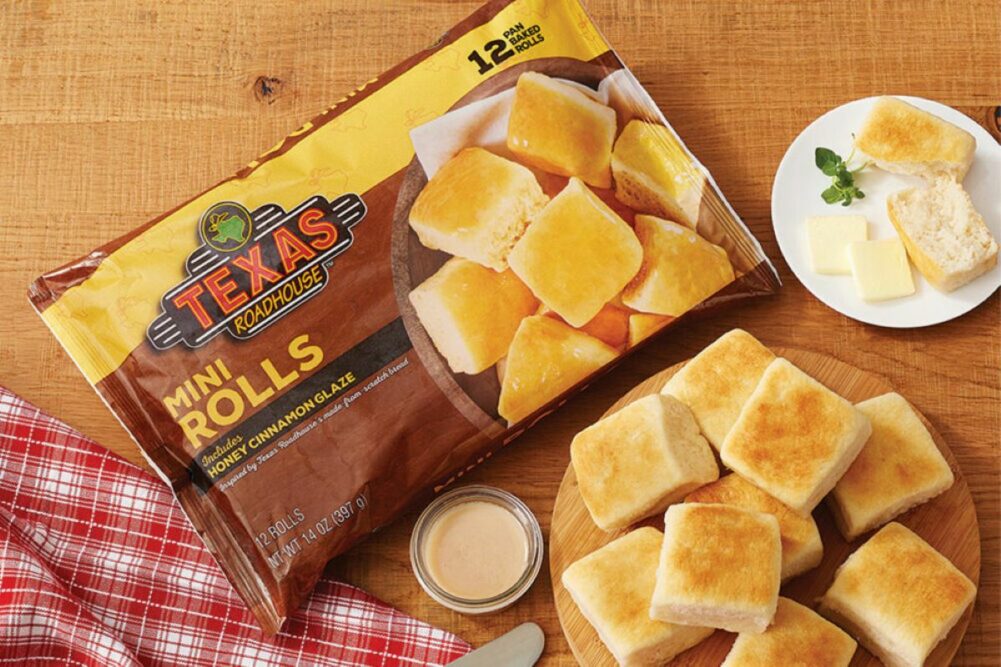WESTERVILLE, OHIO — Licensing partnerships with Texas Roadhouse, Buffalo Wild Wings, Chick-fil-A and Olive Garden continue to be a driver of sales at Lancaster Colony Corp., but strong contribution from its own brands, including New York Bakery, Sister Schubert’s and Marzetti, also served the company well in the second quarter.
In the case of Texas Roadhouse, the introduction of frozen dinner rolls that began last fall has gone “exceptionally well,” said David Ciesinski, president and chief executive officer. Speaking with analysts as part of a Feb. 4 second-quarter earnings call, Ciesinski said Lancaster has done a nice job of mirroring the taste of the rolls that are served at Texas Roadhouse restaurants.
“Those rolls are iconic,” he said. “That’s one of the reasons that people visit those restaurants.”
Ciesinski said Lancaster has introduced the Texas Roadhouse frozen dinner rolls into 4,000 Walmart locations, with plans to expand the product offering into more retail and mass merchandiser locations throughout the year. He said the company has been impressed by the repeat purchasing behavior for the product.
“The purchase cycle is actually somewhere in the range of like 13 days,” he said. “So, in many cases, we’re seeing people come back twice a month to buy this item, which in a frozen category is faster than anything that I’ve seen.”
In the frozen dinner roll category, second-quarter combined sales of the company’s Sister Schubert’s brand and licensed Texas Roadhouse brand increased 15.9%, resulting in a market share increase of 440 basis points to a category leading 60.8%, Ciesinski said. Meanwhile, in the frozen garlic bread category, the company’s New York Bakery brand increased 2.8%, adding 40 basis points of market share and boosting its share of the category to 41.7%, he said.
For the quarter ended Dec. 31, net income totaled $48.99 million, equal to $1.78 per share on the common stock, down 4.9% from $51.48 million, or $1.87 per share, a year earlier. Lancaster said the most recent quarterly results were adversely affected by a noncash pension settlement charge of $10.8 million and $1.3 million in SG&A expenditures connected to its planned acquisition of an Atlanta-based sauce and dressing production plant.
Ciesinski said during the conference call that Lancaster expects to close the acquisition of the Winland Foods facility in Atlanta later this quarter. He said the plant will give the company the capacity to make products that are both cooked and non-cooked.
“Barbecue sauce and honey mustard require cooking whereas things like a ranch dressing, for example, don’t,” he said. “You’re just mixing ingredients and packaging on those. So, this plant, importantly, provides us both cooked and non-cooked, which gives us a lot of options to play both in sauces and dressings.”
He said Lancaster eventually expects to install system-specific product packaging platforms at the Atlanta plant, which will allow the company to make its Chick-fil-A sauces there.
“It’s in a highly cost-effective location for us in terms of proximity to customers,” he said.
Net sales for the second quarter rose 4.8% to $509.3 million from $485.92 million a year ago, reflecting a 6.3% increase to $280.8 million in the retail segment and a 3% increase to $228.5 million in the foodservice segment. Excluding prior-year sales from exited perimeter-of-the-store bakery product lines, including Flatout and Angelic Bakehouse, retail net sales were up 8.4%, Lancaster said.



